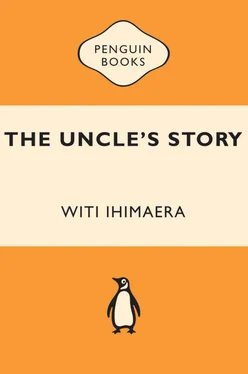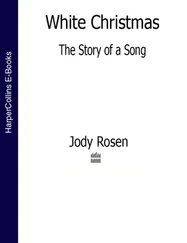I lagged behind with Sterling and Wandisa.
‘The reason Lang sounds like a textbook,’ Sterling said, ‘is because he took his degree in Art History. He hasn’t spoken like a real person since.’
We took our seats in the hall. People who had heard Roimata and I make our entrance came to shake our hands and to say hello. Over three hundred delegates were in attendance. The majority were representatives of all the Indian tribes of Turtle Island, the name they gave to North America — for them, the distinction between Alaska, Hawaii, Canada, the United States and Mexico was a colonial fiction. A few delegates, like Roimata and myself, had come from other countries: New Zealand, Australia, South Africa and Iceland.
The noise in the hall receded. The organising committee took the stage. Roimata was surprised that Franklin was among them.
‘I’m getting a terrible feeling,’ she whispered. ‘Franklin was driving this huge limousine last night and —’
‘Franklin?’ Wandisa answered. ‘He’s one of the sponsors of the conference. He’s a millionaire, probably the richest Indian in this room. Of course, that’s because he’s an Inuit.’
Roimata’s jaw dropped.
‘Oh, no,’ she said. ‘I thought he was a chauffeur. We had a photograph taken. I made him put on a cap. Oh, I could die.’
Before Roimata could do that, Bertram Pine Hawk motioned that the opening ceremony should begin. Two elderly women came out and, beating drums in a steady rhythm, offered prayers of thanksgiving and hope. They were joined by Lang’s grandfather, Albert Pentecost, who had similar status as a kaumatua in Maori proceedings.
Bertram Pine Hawk approached the rostrum. As he did so, a small fact stuck in my brain. Bertram, Franklin, Lang’s grandfather Mr Pentecost and the two women elders were First Nation, but they were outnumbered on the stage by European officials of the organising foundation.
‘On behalf of the Canadian Council for the Promotion of First Nation Arts,’ Bertram Pine Hawk began, ‘I am pleased to welcome you all to Survival 2000. The Council is funded by the Canadian Government and some of the members are on stage with me today. The Council wants you to know that they totally support the objectives of this conference and have asked me to announce that a fund of $2 million is to be established to further the arts of our people.’
Bertram Pine Hawk’s words were greeted with a murmur of pleasure, and he himself led the applause. He motioned to the members on the stage to receive the acclamation.
‘I am the First Nation representative on the Council,’ he continued, ‘and I want you to know that without the Council’s support this conference wouldn’t be happening today. Without their funding, we wouldn’t have distinguished guests from around the world to provide insight into how the indigenous arts are supported in their own countries.’
Roimata banged me with an elbow.
‘Hmmn,’ she said. ‘I hope he doesn’t think he’s bought us —’
Delegates from all over the hall were leaping to their feet to acknowledge Bertram Pine Hawk and the Council. With a theatrical flourish he opened his arms:
‘Let the conference begin!’
I looked at Roimata. She nodded to me and we stood to join the applauding crowd. We stood out of respect for our Indian hosts, but not for what had been said. We’d both seen this kind of thing before.
A puppet out front.
Behind, people pulling the strings.
3
The next morning Auntie Pat rang again. She was agitated and seemed to need reassurance.
‘I’m sorry, Michael,’ she said, ‘for always being on your case about Cliff Harper.’
‘You don’t need to be sorry, Auntie, I understand.’
‘I’ve been carrying Sam’s story around with me for so long. The burden of it has been so heavy. It’s been a burden I have carried with love, but I don’t know how much longer I can do it. I guess we’ll just have to keep on hoping, won’t we? Keep on going until it is resolved. And if it isn’t, well, we will have tried our best. You will try your best, won’t you, Michael?’
‘Yes, Auntie Pat. You know I will.’
I put the telephone down. It was too early to telephone Cliff Harper and try once more to talk to him. I resolved to do so that evening.
Depressed, I dressed for the day. I looked into the mirror, and I felt like shattering it with my fists. Who could I turn to for help? I couldn’t even pray to God, because why pray to a god who denied his kingdom to gay men? His prophets had established homosexuality as a sin. They had all denied gay men and women a place in the main narrative of the world — God, his prophets and his followers.
My grandfather had been such a follower. He had tried to remove Sam physically from the family and to obliterate all traces of him. How I hated him for that. I wanted to picture him collapsing beside the broken body of his son on that day he had taken Sam out to the burial place on the farm. I wanted the bastard to weep, ‘Sam! Oh, my son!’ — to weep so hard that after he’d used up all his tears he would begin weeping blood. I wanted to hear him wail as he pushed Sam’s body into the pit he’d dug for it. Throughout all the years afterwards I wanted his eyes to rot from the constant weeping.
Most of all, I wanted to curse the God that Arapeta believed in:
Yes, better indeed to rule in Hell than to serve in Heaven.
I hoped that when he died Arapeta had gone to a worse place than that to which he had consigned his son. I wanted crows to come out of the sky to take their retribution, to slash and claw and rip my grandfather, to spill his entrails open in some sacrifice for his unbending righteousness. I wanted him to be denied any possibility of redemption.
Grandfather Arapeta had consigned Uncle Sam to Te Kore, The Void. He had disconnected him from the umbilical cord of whakapapa, and sent him falling head over heels like a spaceman trailing his severed lifeline through a dark and hostile universe to oblivion.
This was how it was done to all gay men and women. But if we were lucky, oh if we were lucky, someone remembered who we were. Someone stopped us from becoming invisible. Expunged from memory. Deleted from the text.
Auntie Pat had, at the last moment, caught the lifeline:
‘I’m here, Sam. Hold on, brother.’
If we weren’t lucky, however, we were gone.
Forever.
I met Roimata and she was fury incarnate.
‘The whole conference is a jack-up,’ she said. ‘It’s been rigged and we’ve been hoodwinked into coming.’
When Roimata was angry, watch out. But we had a dilemma. The paper we had come to present, ‘The New Zealand Perspective: The Maori Experience’, was scheduled to take place in the afternoon. Immediately after the opening ceremony Bertram Pine Hawk himself had asked us to err on the side of the positive.
‘We must honour the millennial spirit,’ he said. ‘The theme must be on the achievements of indigenous peoples and on reconciliation. You understand, don’t you?’
To be fair, there was nothing wrong about celebrating indigenous achievement — and the concert after Bertram Pine Hawk’s address had been a spectacular showcase of indigenous dance, theatre, literature and music. Writers Lee Maracle, Thomson Highway, Jeannette Armstrong and Kateri Akiwenzie-Damm had shown that First Nation literature was in superb hands. The fantastic Chinook Winds dance company had brought the house down with their ‘From the Mayan to the Inuit’ production. But I knew when Roimata began to sing under her breath that she hadn’t been fooled one bit:
‘You’ve got to accentuate the positive, eliminate the negative —’
She looked over at Bertram Pine Hawk, who was laughing unawares.
Читать дальше












